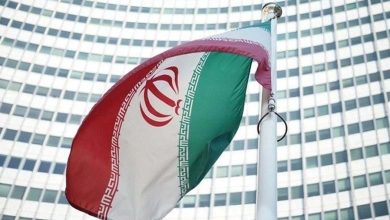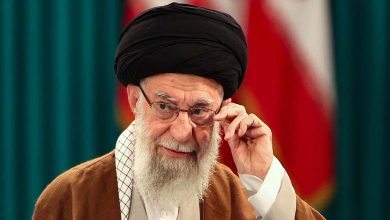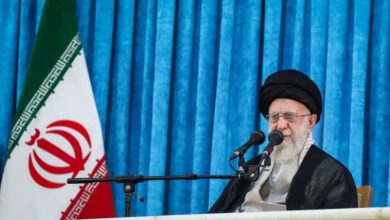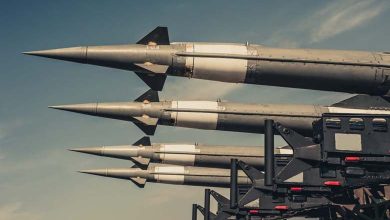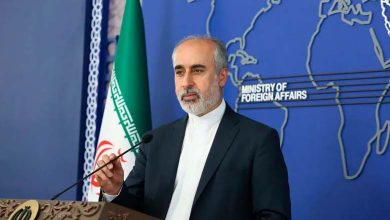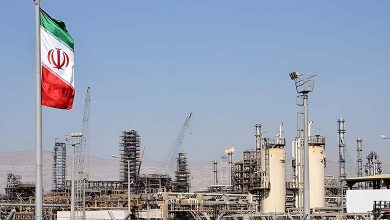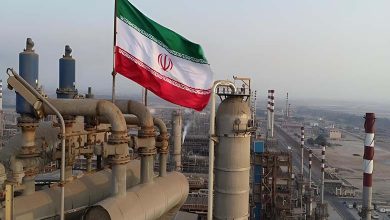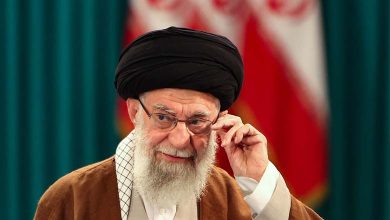Khamenei’s niece calls on West to oust ‘bloody regime’ in Iran
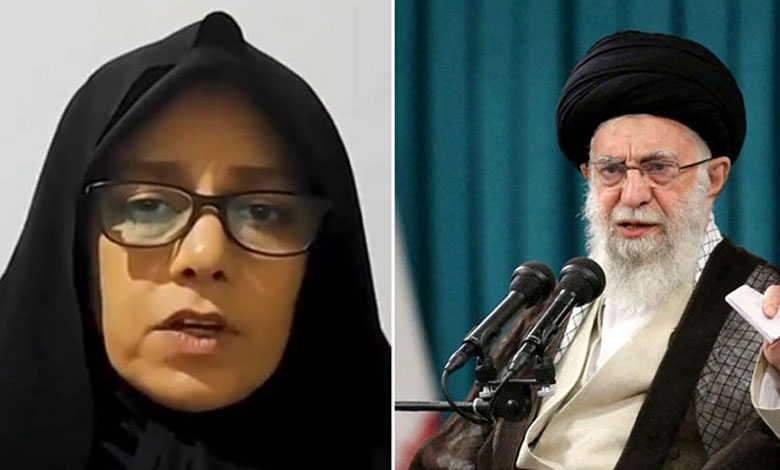
The niece of Iran’s supreme leader Ayatollah Ali Khamenei has been arrested after recording a video calling his uncle the “criminal and murderous regime” and calling on the world to boycott a regime she described as “bloody.”
Farida Moradhani is a member of a family with a record of opposing Iran’s clerical leadership and was previously imprisoned in the country. Her brother, Mahmud Moradhani, tweeted that she had been arrested on Wednesday after going to the prosecutor’s office at her summons.
On Saturday, he posted a YouTube video with a link to his Twitter account, in which his sister denounced the “clear and blatant repression” of Iranians and criticized the inaction of the international community.
And she said, “Free men, be with us! Tell your governments to stop supporting this criminal regime that is killing children.” She added, “This regime is not faithful to any of its religious principles and knows no law or rule but force and the preservation of its authority in any way possible.”
She complained that the sanctions imposed on the regime for its crackdown were “laughable,” saying Iranians were left “alone” in their fight for freedom.
Moradhani is the daughter of Khamenei’s sister Badri, who disagreed with her family in the 1980s and fled to Iraq at the height of the war. She was joined by opposition cleric Ali Tehrani, who was born in the name of Ali Moradhani Arangui.
She gained fame as an anti-death penalty activist and was previously arrested in January this year.
She had praised at a video conference in October 2021 Farah Diba, the widow of Shah Mohammad Reza Pahlavi, who was overthrown by the Islamic Revolution in 1979.
The video, released by Khamenei’s niece, an engineer whose father was a leading opposition figure and who married the sister of Iran’s Supreme Leader, was widely circulated online after the Iranian Human Rights Activists News Agency (Hana) reported her arrest on November 23.
As of November 26, 450 protesters had been killed in unrest across the country over two months, including 63 minors, Hrana said, adding that 60 members of the security forces had been killed and 18,173 arrested.
The protests following the death of Iranian Kurdish girl Mahsa Amini after she was arrested by morality police for “inappropriate clothing” are one of the biggest challenges the country’s religious establishment has faced since the 1979 Islamic revolution.
In defiance of the Islamic Republic’s legitimacy, protesters from across the spectrum burned pictures of Khamenei and called for the fall of the country’s Shia theocracy.
Mahmood Moradhani, Farida’s brother who lives in France, posted the video on YouTube on Friday. On his Twitter account, Mahmoud defines himself as “an opponent of the Islamic Republic.” The video was reposted by prominent Iranian human rights activists.
The crackdown, described as “brutal” by Western reports, continues but has not succeeded in quelling the popular movement, which is about to enter its third month, while the Iranian authorities are escalating arrests and issuing harsh judicial rulings to spread fear and terror among protesters.
In the latest episode of intimidation, Iran’s judiciary said on Sunday that rapper Toumaj Salehi, who has been detained since late October for supporting anti-regime protests, could face the death penalty.
According to relatives of the Iranian singer, his trial opened in a closed session Saturday with legal representation, while he faces a charge of “corruption on earth,” which is punishable by death in Iran.
“The trial has not yet taken place, but the indictment has been prepared and sent” to court in Isfahan, the head of the Isfahan judicial authority, Assadullah Jafari, was quoted as saying by the Mizan Online news agency.
He said he faces charges of “corruption on earth by spreading lies on the internet, propaganda against the regime, and forming and leading illegal groups with the aim of causing security unrest by cooperating with a government hostile to Iran and inciting violence”.
Authorities call the protests “riots” and accuse the West of inciting them.
On November 2, the official Iranian news agency IRNA released a video that reportedly shows Salehi blindfolded and confessing to having “made a mistake,” in confessions that activists said were “extracted by force.”
Before his arrest, Mughniyeh had criticized the authorities in statements he made to Canada’s CBC network. “You are dealing with a gang that is ready to kill an entire nation in order to keep its power, money and weapons,” he said.
The Iranian judiciary has so far issued six death sentences since the protests began. More than 2,000 people have been charged, according to official figures.
In another sign of the government’s determination to continue militancy, the head of an Iranian bank has been sacked for serving a woman who did not wear a mandatory hijab in the country witnessing protests, local media reported Sunday.
Since the 1979 Islamic Revolution, all women have been required to wear the head and neck covering hijab, but the death of Iranian Kurdish girl Mahsa Amini after being detained by morality police for not obeying the headscarf regulations sparked mass protests that quickly morphed into a religious regime trial and burned down hijab women in a symbolic movement to rebel against restrictions imposed by the clerical establishment.
“The head of a bank in Qom province who provided banking services to a non-veiled woman on Thursday was removed from his post by order of the governor,” Deputy Governor Ahmad Hajizadeh was quoted by Iran’s Mehr News Agency as saying. “This not veiled woman’s video has aroused a lot of reactions on social media.”
“The implementation of the headscarf law in government institutions is the responsibility of its director,” Hajizadeh said, according to IRNA. The country owns the vast majority of banks in Iran.


